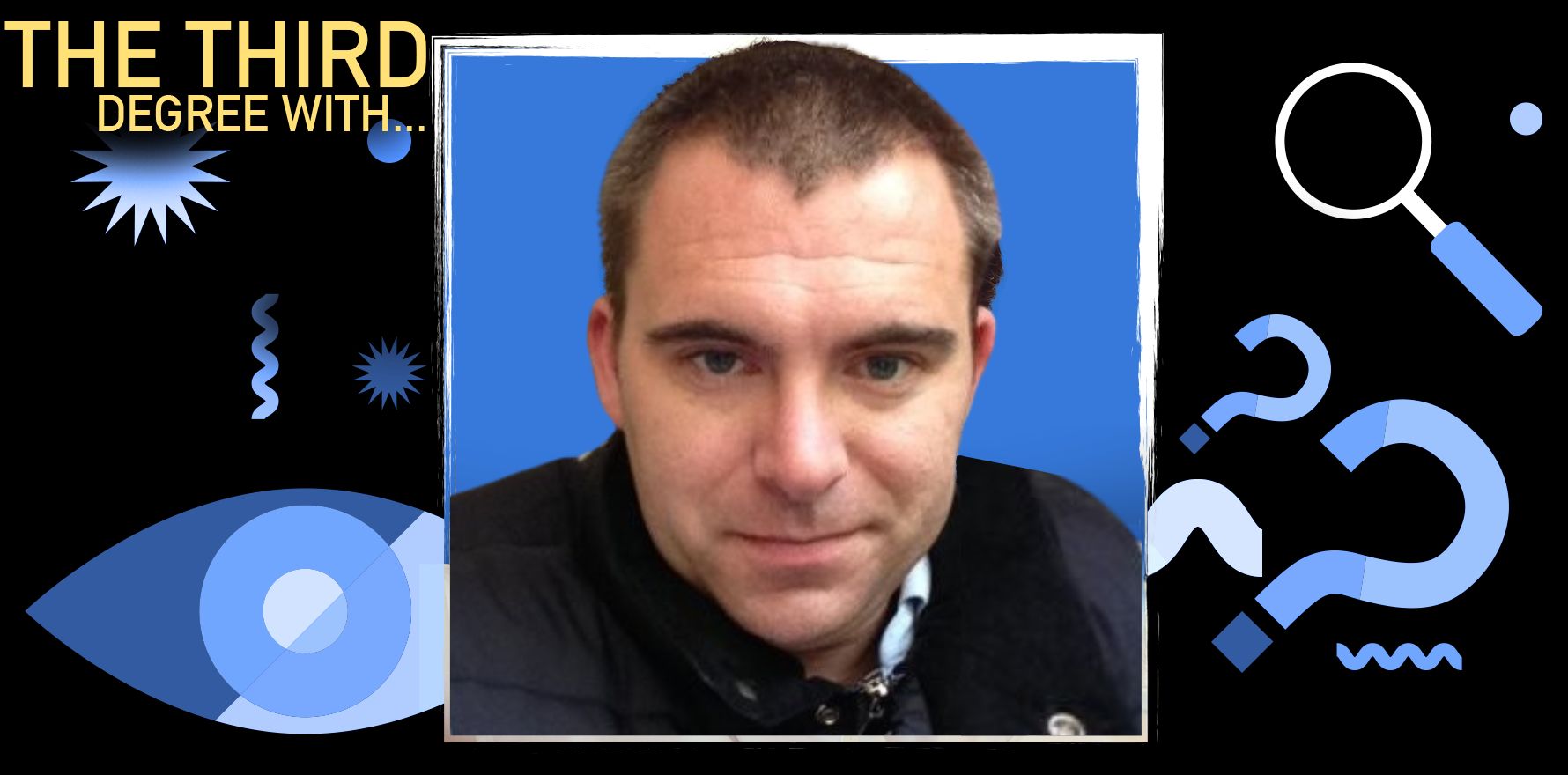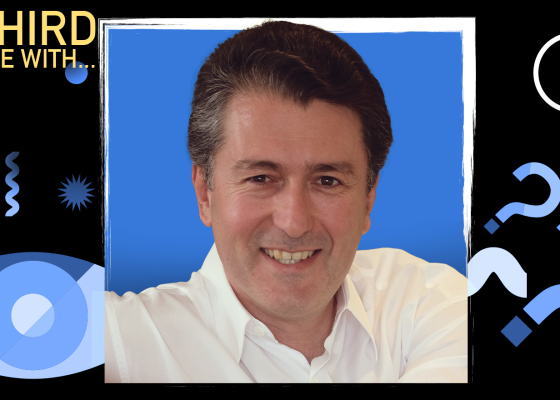You’re not supposed to bag out the government when you’re a consultant but the Semantic Consulting boss has a few choice words regardless.
Many primary health networks use Tim Blake, and his company Semantic Consulting, to improve healthcare through better adoption of digital tools. He’s seen the full spectrum of change management; from heels-dug-in doggedly resisting adoption, through to health clinics with an eager appetite to transform.
Tim says healthcare has technology enablement the wrong way around and he’s keen for governments to wake up and smell the data.
Problem is, some of them don’t seem to want to listen.
Everyone in healthcare is gathering data like there’s no tomorrow. Do they know what to do with it?
We are data rich and insight poor.
I can’t make ultimate sweeping statements for the whole industry but yes, I am shocked about the inability of many people in healthcare to be able to even read a graph.
This is not to apportion blame either. For example if you’re coming into an organisation, as a former nurse for example, lack of data literacy is not your fault. Organisations need to get much better at helping people learn how to turn data into stories and narratives, and then get skilled at learning from these narratives.
That’s has got to come from the top though.
Yes, and that is probably my greatest frustration in the revolving door leadership, particularly in federal departments and the digital health agency.
There’s such a paucity of understanding and vision when it comes to these things. I wonder whether many of the things we do in healthcare will ever be improved, just because some of these dynamics are not understood.
What dynamics are you talking about?
Health services who are at the early stage of their digital health maturity journey tend to ask: “What is digital health? Why should I care? I’m not paid to do this work. Why should I bother with it?”
At the other end of the spectrum, under the same set of conditions, you have health services that say: “This (new digital solution) is great! I totally get it but we need help. How do we do this? Show us how to do it.”
You can see that that is two different problems. At the immature end of the spectrum you have a motivation problem. At the top end of the spectrum, you have an information problem.
Yet, traditionally, when we do change work in technology and healthcare, we treat the spectrum of maturity as just being monolithic and we have the same training materials and the same messages for everyone and assume that it will just work.
But are some clinicians just whingers about adopting digital health and need a cup of concrete?
I actually have a lot of compassion for medical practitioners because I think we’ve not necessarily done a great job of supporting them over the last few years.
What frustrates me most is government and federal agencies and the larger state groups who continue to treat everyone the same when it comes to approaching change.
There is no nuance in the way that we try to sell the value of change, depending on where people might be at in their understanding.
Not only is there a lack of nuance, there’s no interest in thinking through the nature of the problem or trying to understand that it might be more complex than that. There is just this myopic push forwards that says “let’s get it done”. Then everyone is surprised that the communication hasn’t been effective.
That happens over and over and over.
Do you have an example?
My Health Record.
The history of My Health Record has been one of: “Let’s implement.” Then: “Okay, that hasn’t been very successful. Let’s do the next thing. Oh, that hasn’t been very successful either.”
There’s very little reflection about why adoption hasn’t been successful, and there’s very little interest in learning why it was unsuccessful.
When people like our organisation come along and show them what we’ve learned (about how to improve digital uptake), they’re neither interested, nor do they understand it.
So when you have tried to share insights that the DoHAC could implement to be more effective in the roll-out, the people you spoke to were not interested?
Yes, that’s right. There’s a prevailing narrative that digital literacy is often the problem when it comes to change.
Yes, digital literacy is a problem, however, there’s a more fundamental problem – data literacy. We don’t train health professionals very well about the role of data in what they do.
What’s the difference between digital and data literacy?
Digital literacy is just about how technically we make use of digital tools, how confident we are to do that.
Data literacy is a core understanding that data has a role in my career, whatever it is, because I can use data to improve. It is fundamentally about understanding both the numbers, and also the stories, because data can be qualitative as well as quantitative. Data provides evidence about the impact that we have, or have not had, so that we can create a continuous quality improvement loop.
It’s the idea that you do something, you see how effective it was, you reflect on what you could do differently and you improve. Then you do it again.
What we found in all our research with PHNs and with all the data we now have is that when data literacy is in place, people are much more motivated to become digitally literate.
Why?
Because they see the reason why they need to use these digital tools. It’s like when people’s IQ goes up when they’re motivated.
If you try to create digital literacy when people have no motivation then it’s amazing – you can throw millions of dollars at digital literacy and get only a marginal gain.
We’re doing things the wrong way around? The bureaucrats need to know this. Maybe they are data illiterate too?
I’m not saying that the bureaucrats can’t read data. They probably can, they’re bright people. However, they don’t necessarily get how big an issue this is for the rest of healthcare. It’s one of the systemic flaws in the health system.
Imagine that everyone magically overnight learns how to read the data in their health clinics and hospital, how much difference would that make realistically?
Huge amounts.
Admittedly, we are missing some pieces of data but a lot of the data we gather is never used because we’re told to gather it, not because we want to gather it.
You hear: “Oh, the Commonwealth told us we have to capture this.”
It comes back to that lack of data literacy, lack of knowing how you can use data to improve. That’s what’s behind the lack of motivation for adoption.
Instead, imagine if we knew how to use the data to change health outcomes. Imagine if we gathered data because we saw the value of it, because we wanted to use it to improve healthcare. That’s what it means to be a learning health system.
“Learning health system” is a phrase used in the new digital health blueprint. Thanks for explaining what that means.
You’re welcome, but this puts the onus on organisations to recognise how to use and learn from data and train people.
Wildcard question: Would you rather live in a boathouse, a treehouse or a teepee?
I think I’m a treehouse kind of guy.
My kids would say that’s probably because I look like an Ewok.
There’s something appealing and calming about being high up in a tree. Perhaps I’d have to deal with less government bureaucrats.



